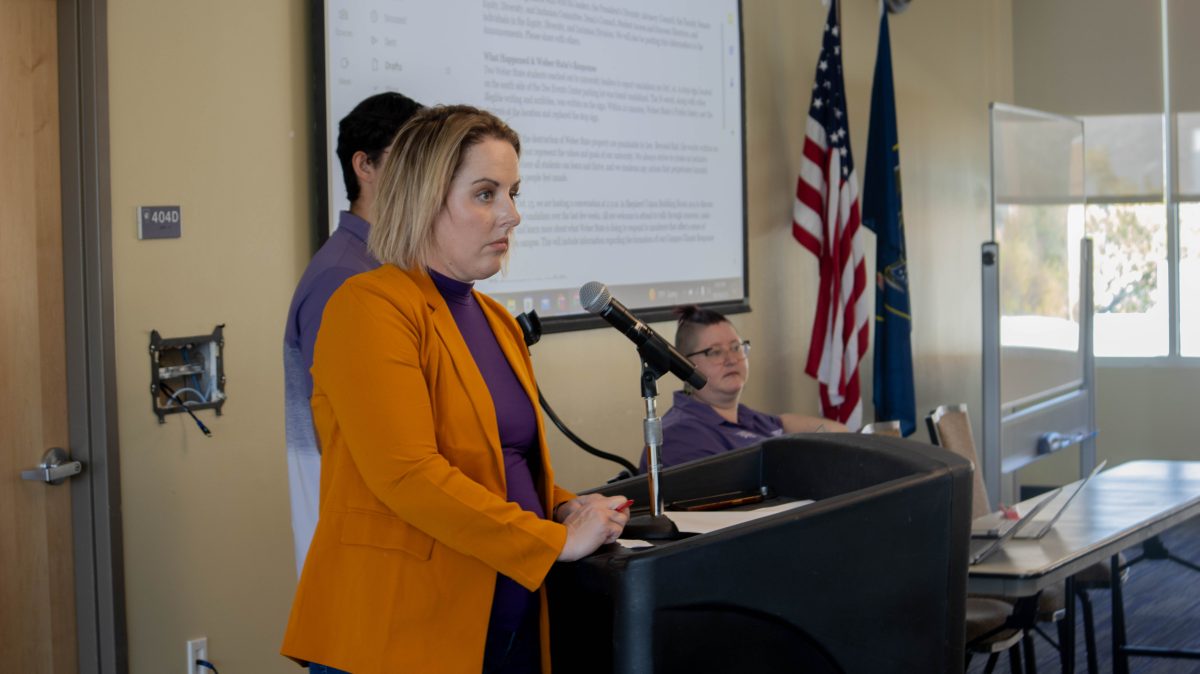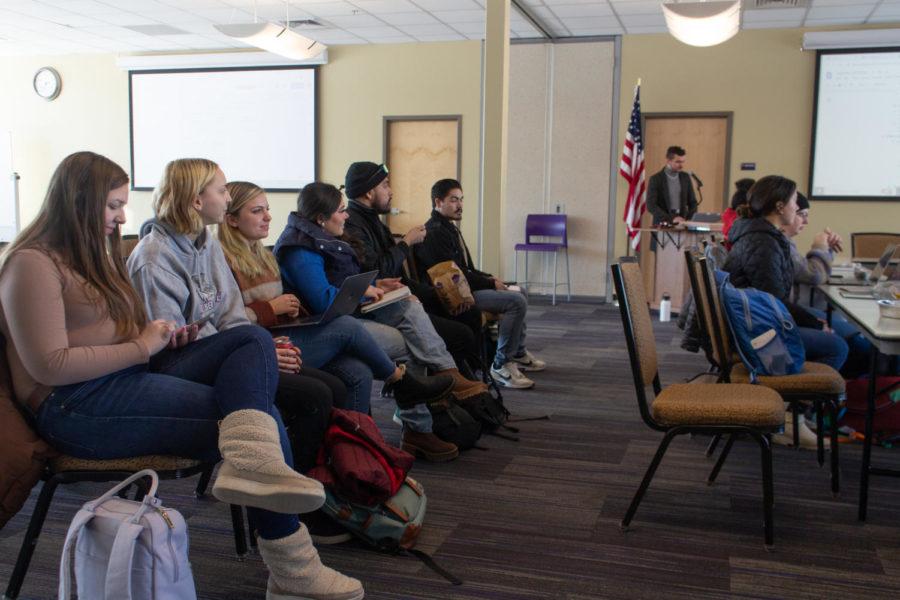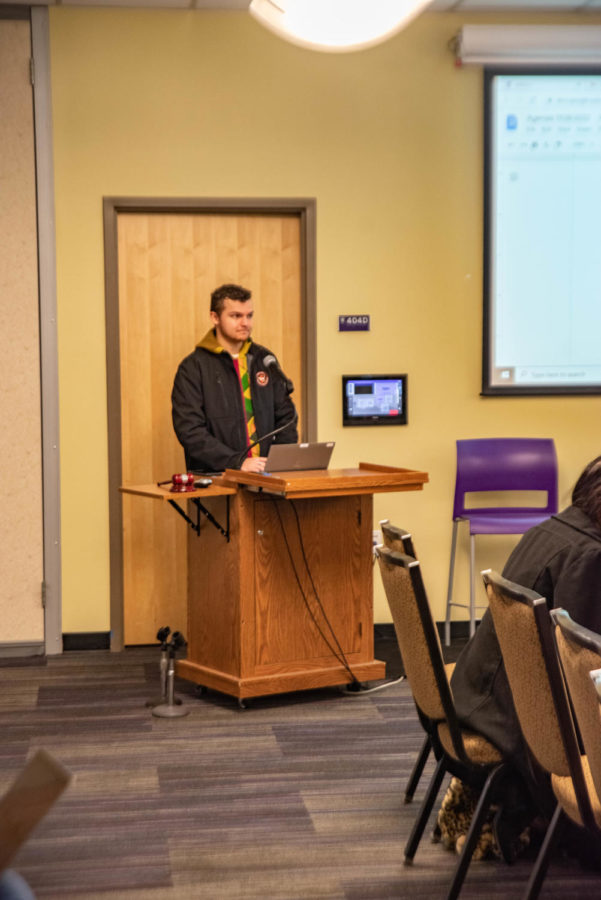Jayrod Garrett, a creative writing senior, said he loves to play racquetball. He plays in Weber State University’s Stromberg Gym whenever he gets the chance, but he can’t play alone. Garrett’s father also loves to play, and so does his wife. But, unlike Garrett, his wife and his father aren’t students and must pay $6 each to enter the gym. For the Garrett family, racquetball has become an expensive hobby.
“If we just had enough benefit on the Wildcard where I can just bring in a guest into the gym with me, whether it’s my wife or anybody else, that would be great,” Garrett said, “because there are a lot of people that I would like to enjoy those things with, but I can’t unless they are students here.”
Garrett said having benefits on the Wildcard such as health care for spouses would be really helpful.
“I know at one time, spouses had health benefits through the card,” Garrett said. “Up until recently, you could take your spouse to the clinic and they could get health care needs met, but they stopped that. Having that back would be really helpful, especially if parents could get limited pediatric care.”
According to Brady Harris, the student senate president, the spouse benefits were dropped only two years ago due to budget cuts. The administration didn’t want non-students to use the services students were paying for. Ever since then, Harris said, there has been talk of letting the spouses use services again.
“General student population wouldn’t want to pay for a spouse to use services they are paying for,” he said. “And so the administration made the call to take that spouse card away.”
The student senators discussed having spouse benefits or even plus-one benefit Wildcards. Spencer Garn, the nontraditional student senator, was the one who suggested re-looking into benefits for spouses. The biggest issue was cost for the students and non-students who will benefit from the new cards.
“What the senate is doing right now is we’re looking into it and what the financial impact would be on these services, and our ultimate goal is to bring back the spouse card,” Harris said. “But there will be a monetary fee attached to it.”
Kimberly Tribe, the College of Education senator, was assigned the Wildcard dilemma as her project. But, according to Tribe, there’s not much to report on the progress of the decision.
“We’re kind of still in the process of investigation, whether or not it’s even feasible to do,” Tribe said.
She and the other students in the senate are calling other schools to see what programs they have done to solve the problem of spouse benefit cards. According to Tribe, Utah State University and Brigham Young University offer similar benefits to spouses and family members of students. Tribe will speak with the departments the card would affect — “possibly the gym, the library, the athletics and that kind of thing to see what we can do, how much it would cost, and possibly health services for an additional cost, and see how much it would cost for someone to get that card.”
The major debate is with the Student Health Center. Increasing the ratio of patients who don’t pay to use the services would place the center at a disadvantage. Because WSU doesn’t offer an insurance plan for its students, spouses using that service would pay an additional fee.
“We are a majority nontraditional student school,” Tribe said. “We have our dual mission of being a community school and also a higher-ed university. And so, obviously, there is a need there; there is that desire, that want, so I think it is beneficial to, at the least, investigate the feasibility and possibility of getting a card for spouses.”

















